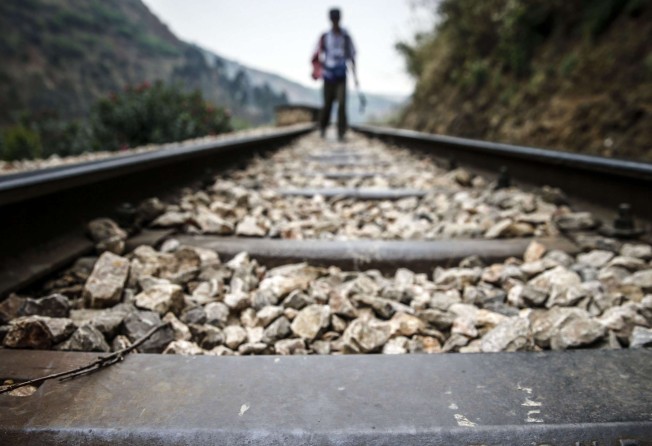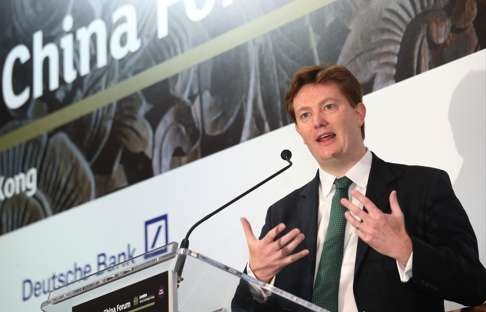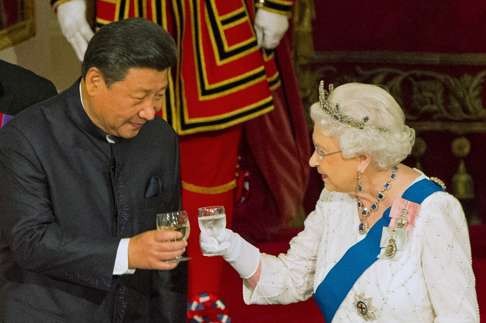Big infrastructure, Xi Jinping and the real role of the AIIB
The Asian Infrastructure Investment Bank will likely finance the next wave of infrastructure construction across the Asian region

I’ve attended a number of speeches where eyes rolled while a Chinese government official read from a narrow script. So it was interesting to attend a speech last week where a Scot received the same treatment - simply for working for the Chinese.
Danny Alexander, a former Chief Secretary to the Treasury who is now a vice president at the Beijing-based Asian Infrastructure Investment Bank (AIIB), spoke last week in Hong Kong, and even before he stepped to the podium, one could guess he was going to face a tough crowd.
During the introductions, references were made to the “Ginger Rodent” beer brewed in his former electoral district - and named after him, as tribute to the colour of his hair as well as an insult once hurled at him by a Labour opponent in parliament.
Alexander laughed off the reference and went on to glossily explain why he, while in the cabinet, had supported the UK’s decision to become a founding member of the AIIB, even as other major countries, such as the US and Japan – who respectively dominate the World Bank and the Asian Development Bank - have been suspicious from the start of this new multilateral on the block.
Alexander received his offer from the AIIB soon after the Liberal Democrat MP was voted out office in the general elections in May 2015. Some saw this as a quid pro quo. Less cynically, by carving out roles for foreigners, Beijing is trying to send a message that the AIIB is not a vehicle for underwriting a global conquest of Chinese enterprises, or bringing more countries into Beijing’s political sphere while simultaneously bringing more natural resources into China.

Rather, as Alexander laid out in his speech, the AIIB was launched because the infrastructure needs of the region are so phenomenal. Some two-thirds of the world’s population is in greater Asia, but the region accounts for only one-third global economic output. This shows there is still lots to build out here.
Later, during the question and answer period, an audience member asked if the AIIB was a vehicle to finance President Xi Jinping’s One Belt, One Road initiative that aims to modernise connectivity and infrastructure along the ancient Silk Road route.
As Alexander denied the connexion in a rather windy manner, some attendees could be seen shaking their heads doubtfully, including a prominent former British official in the audience. After all, the One Belt, One Road footprint covers all of Asia, so how could they not overlap? And if China wants to help finance major infrastructure projects, then why shouldn’t Britain try to horn in on the deal?
Indeed, a British-Chinese Business Council report published in May was quite straightforward on this issue. The report reads like a love-fest, quoting officials from China and the UK as they praise each other’s capabilities and skill sets for re-silkening the Silk Road.

For example, the report said: “Chinese enterprises, already experienced in building China’s modern and ever expanding network of roads, railways, airports and power generation facilities, and supported in their efforts by new financial institutions such as the … Asia Infrastructure Investment Bank, stand ready to take advantage of these opportunities.”
There are many who hope the AIIB will spray the region with cheap funds, which may explain why the audience for Alexander’s speech also included a number of lawyers and financiers who specialise in infrastructure.
One questioner asked whether the AIIB would outdo other multilateral banks by assuming more business risk, thus attracting more private sector partners. Would, for instance, the institution provide guarantees on toll roads, to save investors from the risk that governments would decide post-construction that the said road should be “free to the people”?
Another idea: the AIIB could buy up real estate on and around projects, a presumable reference to the tragedy that struck South Korea’s Posco in India, which started building a steel plant only to find that local opponents prevented the group from procuring necessary surrounding lands.
Such efforts would help the AIIB do “a better service than the IFC,” the questioner scoffed, referring to the World Bank’s finance arm. Alexander pointed out that AIIB was a bank, not a charity. On this deflating note, the session wrapped up.
Cathy Holcombe is a Hong Kong based financial writer